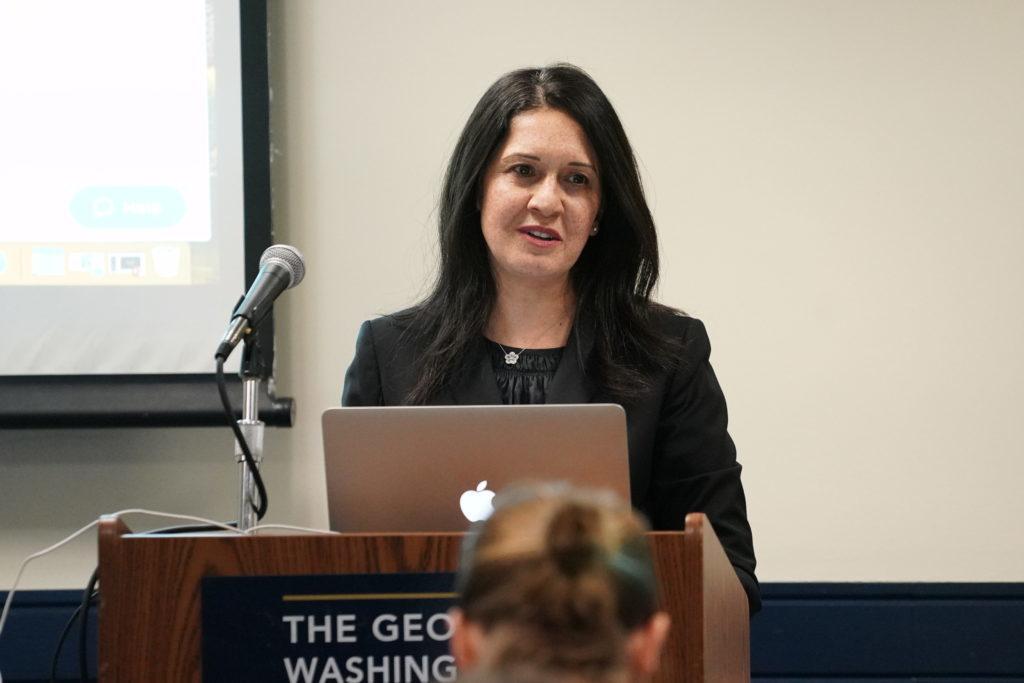Updated: April 2, 2021 at 2:42 p.m.
The number of applications for the Master of Arts in the women’s, gender and sexuality studies program tripled for the upcoming fall semester compared to last fall.
Faculty said 36 students applied to the program for next semester, compared to 12 students last fall. They said the surge in applications highlights the need for more funding and faculty members to maintain the program’s community.
Kavita Daiya, the director of the program, said the increase in interest in the program outpaces the increase in applications for graduate programs across the Columbian College of Arts and Sciences this fall. She said CCAS officials told her the school’s graduate programs overall saw a 1.5 percent increase in applications.
She said the increase in applications can be partially attributed to an improvement in the program’s “cutting-edge” reputation, faculty-student collaboration and visibility within the University. She said officials have increased outreach efforts through webinars for interested students and social media posts publicizing learning opportunities.
She added that initiatives like the program’s alumni speaker series, which launched in 2018, and the monthly Brown Bag seminar series, which began in 2019, have given students a glimpse into the program’s career possibilities. Daiya said the initiatives also connect topics like feminist theory and gender studies to a social justice perspective.
“This hard work of creating a community that has so much synergy in terms of cutting edge and intersectional, interdisciplinary approaches to women’s, gender and sexuality studies is paying off,” she said.
Daiya said she’s most proud of the program’s ability to maintain its diversity levels and added that 30 percent of the enrolled students in the past few years have been students of color.
Given the uptick in applications, she said officials are considering admitting a larger cohort of students next year, but increasing admittance would be difficult. She said maintaining the program’s diversity levels while also increasing the number of admitted students would require more funding and faculty members WGSS doesn’t currently have.
“It would really be great to have at least one or two more faculty that would fill key curricular gaps in our program, and that would really allow this program to keep up with some of the peer schools that we see as competition,” Daiya said.
Officials implemented a hiring freeze more than a year ago in response to the financial impacts of the pandemic, leaving multiple departments with fewer part-time faculty members and less diversity in course offerings this academic year.
Cynthia Deitch, the associate director and director of graduate studies for WGSS, sociology and public policy, said officials can admit a few more students to the master’s program this fall, but they need to be “careful” when doing so because they might not have enough faculty to hold larger classes. She said officials could more easily admit additional students during remote learning because they don’t need to consider allocating more physical space in classrooms to hold courses.
Deitch added that the “dynamics” of the program’s classes change as more students are accepted to the program. She said admitting more students could risk losing the program’s small, seminar-type classes that graduate students prefer.
“What we hope will happen is that by admitting a few more students and having a few more students come, that it will demonstrate to the University administration that this is a very strong and vibrant program and a potential growth area for the University to invest in,” Deitch said.
She said it’s an “exciting” time for the master’s program as it approaches its 50th anniversary next year and said officials are planning to welcome a new faculty member as a director of the program in the fall.
“We hope that will give us some new directions, and also we hope we’ll have some new resources to grow the program,” she said.
Kelly Pemberton, the director of undergraduate studies and an associate professor of WGSS and religion, said she hopes the program will develop a larger cohort with a greater variety of perspectives as a result of the increase in applications and wider awareness about the program.
She said she’d like to see more men enrolled in the program than the current makeup. Only one of the 10 students currently enrolled in WGSS’s master of arts program is male, according to institutional data.
“We also have to bring in the people who normally wouldn’t even consider women’s studies if we’re ultimately going to be a positive force for change both on campus and then for our students in the wider world,” Pemberton said.
Pemberton said the master’s degree is marketable especially in light of growing interest and awareness of gender and sexuality issues. She said broader issues like race, sexuality and class in the field are no longer viewed individually as they become increasingly relevant in the STEM field and the corporate world.
“There’s just a lot of visibility in the public sphere and this has translated very well into students wanting to get an advanced degree with this focus,” she said.
This post has been updated to correct the following:
A previous version of this post incorrectly stated that Daiya is the director of graduate studies for WGSS. She is the director of the entire program. We regret this error.








